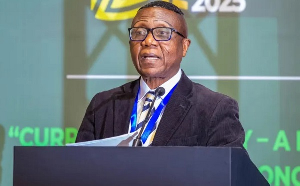It has been argued that pre-tertiary teachers (primary school and junior secondary school) deserve more salaries commensurate with their skills, knowledge, and abilities. The exponents defend this assertion on two basic grounds. First and foremost, they argue that an adequate compensation for teachers would enable them to meet their basic economic needs of food, shelter, clothing, and entertainment. With these basic needs satisfied, according to them, teachers would have the physical strength, mental and psychological health to do their job reasonably well. Second, an adequate compensation for teachers, they contend, would encourage existing teachers to stay in the profession and this is also likely to attract new entrants into the teaching profession.
Nevertheless, should the government pay public school teachers more remuneration for their performances or for their skills, knowledge and abilities evidenced by their certificates, diplomas or degrees? From my perspective, work performance or productivity must always be given a top priority over retrospective academic accomplishments in determining employment compensation. That is, increased performance or productivity must be the sole criterion for paying public school teachers over and above what they need to survive economically. As well, there is no strong empirical evidence to support the assertion that paying teachers more compensation relative to workers in similar occupation and with comparative educational background would stem the tide of attrition in the teaching profession or make it the career destination for many young people. There are other personal and sociological factors that influence many contemporary teachers to exist or stay in the profession. One of those factors is the social status accorded pre-tertiary teachers. In Ghana, the teaching profession does not any longer command much social respectability as it did in the 1960s. In fact, the historic characterization of teaching as a benevolent calling has been replaced with teaching as a remunerative career.
What then is performance or productivity? Performance is simply output or effort put forth by an employee or group of employees. While in the business world the output of employees can be described in quantitative terms such as units produced in an hour, tasks/projects completed in time units, or the number of projects completed over a specific period, teaching does not lead itself to such precise quantitative measurements. Some social theorists may cite outcome variables such as graduation rates, examination passes (for instance, the Basic Education Certificate Examination), test scores, and rates of retention as sufficient objective criteria for measuring the performance of teachers. In general, there is more justification to hold, say, BAT Secondary School accountable for poor student examination passes than it is to hold an individual teacher responsible for low student academic achievement.
Examination passes or test scores, for instance, may or may not bear a direct correlation with teacher professional performance. There may be other confounding factors that make it increasingly difficult to delineate teacher responsibility for those outcome variables. In fact, examination passes or test scores may have more to do with inadequate learning facilities such as well-equipped laboratories, libraries, or textbooks than the quality of teaching. It could also be traced to a lack of commitment or motivation on the part of students. Retention rates or enrolment rates may also be traced to other influences such as the perceived relevance of education, parental values and economic background, accessibility to schooling, and peer pressure. Indeed, in some jurisdictions attempts to measure teacher performance on the basis of student test scores or examination passes have encouraged teachers to focus exclusively on “teaching to the test”, much to the detriment of the overall development of the students. Lastly, examination passes such as the Basic Education Certificate Examination (BECE) are unreliable criterion for assessing the performance of teachers. The BECE examination is ranked according to the principles of normal distribution, in which an individual grade is compared to other candidates who took the same examination at the same time and not in relation to specific benchmarks. Thus, those criteria are most suitable for measuring the macro- performance of a school organization as a whole rather than the performance of individual teachers. That is to suggest that measuring the performance of members of school organization such as headmasters, teachers and non-instructional staff requires a different approach.
From my professional perspective, teacher performance should be evaluated using the following criteria, which indirectly have some significant influences on the outcome variables stated above:
1) Commitment to students and student learning. This includes an understanding of student learning styles, interests, passion, emotions, career aspirations, and strategies to enhance their academic achievements.
2) Frequent communication with students and parents/guardians. Teachers must find time to meet with students individually either for one-one tutoring or other counselling. It is also important for teachers to find ways to communicate with parents about their children’s cognitive, social, physical, and psychological development. That way, the parents would also provide the teacher with information that could be useful in instructional programming, instructional delivery strategies, designing learning activities, assessing and evaluating student learning outcomes.
3) Professional knowledge of school curriculum and teaching tools. Teacher knowledge in this respect can be demonstrated by concepts or topics they teach in the classroom and the concrete materials (including manipulative resources) and cultural referents they use in instruction.
4) Teacher practices in the classroom. This entails approaches teachers use to teach subject-matter and manage student interaction and behaviour in the classroom. The question that must be answered is this: Are the classroom practices conducive to student learning? If the teacher practices favour certain groups or individuals and disadvantage others, they are not conducive to student learning.
5) Participation in the cultural life of the school. A school organization is a cultural community whose core mission is teaching and learning. However, it should inculcate in its young membership (students) a set of values such as responsibility, accountability, honesty, leadership, sharing, discipline, and democracy. It should also provide opportunities for students to develop the full-range of their talents and career aspirations. Teachers could individually or in groups initiate projects, establish clubs/associations, organize activities for those purposes.
6) Participation in professional learning. A range of activities come under this heading. They include any activities aimed at enhancing teacher professional knowledge, attitudes, skills, values, or competency. Using these criteria to evaluate teachers collectively in Ghana, I find that they fall short of satisfactory scores. Thus, they don’t deserve pay increases beyond those that will compensate them for inflation. To get more compensation from the government, teachers need to do more than what they are doing presently.
It is an entrenched culture in Ghana for public sector workers to demand more wages and salaries without any corresponding increases in productivity or performance. Teachers are not exception in this case. Recently, the Ghana National Education Campaign Coalition (Ghanaweb general New, August 25, 2006) submitted an eleven-point recommendations, which among other things, demanded that teachers should be paid more salaries than they are paid at the moment. But the coalition did not put forward any plans about what teachers would do to improve teaching and learning. A plan to improve the quality of public schooling is urgently needed at this time of our history than any other times. In fact, the quality of public schools in Ghana, particularly, primary school is deteriorating so fast that if nothing is done it would be wiped out from our major cities and towns in Ghana. I do not want to sound like a prophet of doom; when I look at enrolment statistics for public primary schools relative to private primary schools I see that it has been stagnant or declining, while it is increasing at an exponential rate in private schools. This is why private schools are mushrooming in all the regions save the poorest regions--- Northern, Upper west, and Upper East. For example, the Ministry of Education reports that for the Greater Accra Region in 1986/87 there were 96 private primary schools compared to 604 public primary schools. However for the 1994/95, the number of public schools jumped up by only 12%, whereas that of private schools hiked by a whopping 231.3%. Similarly in the Asante Region, the number of private primary schools in 1986/87 was 28 and public primary 1585. By 1994/95 school year, the number of public primary schools had increased by 6.88% compared to 935.7% for private primary schools.
The author of this article is interested in strategic plans the Teacher Union and its allied organizations have for rescuing public primary schools. Even if the Teacher Union and their supporting organizations do not have any strategic plans for public school improvement, the government could design one and use it as a bargaining chip with the union whenever it demands pay increases. So far neither the teacher union nor the government has shown any concrete leadership on the issue beyond empty rhetoric and shibboleths. The teacher union is more interested in negotiating salaries and employment benefits than working out a plan with the government to improve the quality of teaching and learning in the public system. This business unionist attitude of the teacher union has not done any good service to the quality of teaching and learning in the public system. A professional union should do more than merely negotiating remunerations and benefits for its members. It should find ways to advance the knowledge base of the profession, improve the professional skills, knowledge, and abilities of its members so that the students (the clients or users of the service) would be better served. The government’s lack of concern for the poor quality of the public system may be due to lack of vision and incongruence of class interest. Accordingly, the critical question is this: how many ministers, deputy ministers, members of parliament and senior bureaucrats educate their children in the public system? None educate their children in that system, according to my research. Therefore, these people have no class interest to improve the deteriorating quality of the public system, though a vast majority of them were educated in that very system whose improvement they have neglected and recklessly abandoned, so to speak. The government through its actions and pronouncements has shown glaringly that it lacks a vision for public education. Instead, it is more interested in funding a chief college, whose curriculum, pedagogy, language of instruction, and instructional staff I can not even conceptualize with any precision!
It is perhaps a known fact that the public school system provides basic education for the huge urban poor population, rural children, and those in the poorer regions. In other words, the public school system serves the educational needs of the massive underclass and marginalized population in Ghana. For example in 1986/87, both Upper West and Upper East did not have any private schools. By 1994/95, Upper West had two private schools and Upper East had only one. In Northern Region, by contrast, it had only 3 private schools by 1994/95. Fifteen of the private primary schools that sprang up in that region between 1990/91 and 1992/93 had collapsed before the school year 1994/95. Readers may conjecture some of the possible reasons for the collapse of those private schools. But one thing is pretty much clear: the parents could not afford the tuition the schools were charging. A primary private school, needless to say, is a business that provides educational services based on the ability to pay rather than need. If the government regards basic education as a social good necessary for a better society, then it owes a moral obligation to the poor and disenfranchised segments of the population to improve the quality of public schools.
Essentially, my point is that the public primary school system needs an immediate improvement plan that should be tied to any salary increases for its teachers and head teachers. All the comparative empirical studies of the two schooling systems in Ghana by the World Bank, United States Agency for International Development (US AID), and other researchers show that teachers in the public primary school sector are far better paid and have generous employment benefits than their counterparts in the private sector. Besides, more than 90% of the public school teachers have professional certifications compared to about 55% in the private sector. In terms of learning facilities, public schools are better equipped than private schools, though there are cases where public school head teachers in collaboration with some teachers have diverted and sold to private businesses valuable resources of text books and supplies meant for their schools. Yet the performance of public sector teachers in terms of the above evaluative criteria leaves much to be desired, hence the poor quality of the public system. My observation attributes this problem mainly to poor teacher morale, abysmal professional performance, lack of proper professional supervision, and the blurred ownership of the public system. In view of the above analysis, why then should public school teachers get more pay than their counterparts in the private sector?















